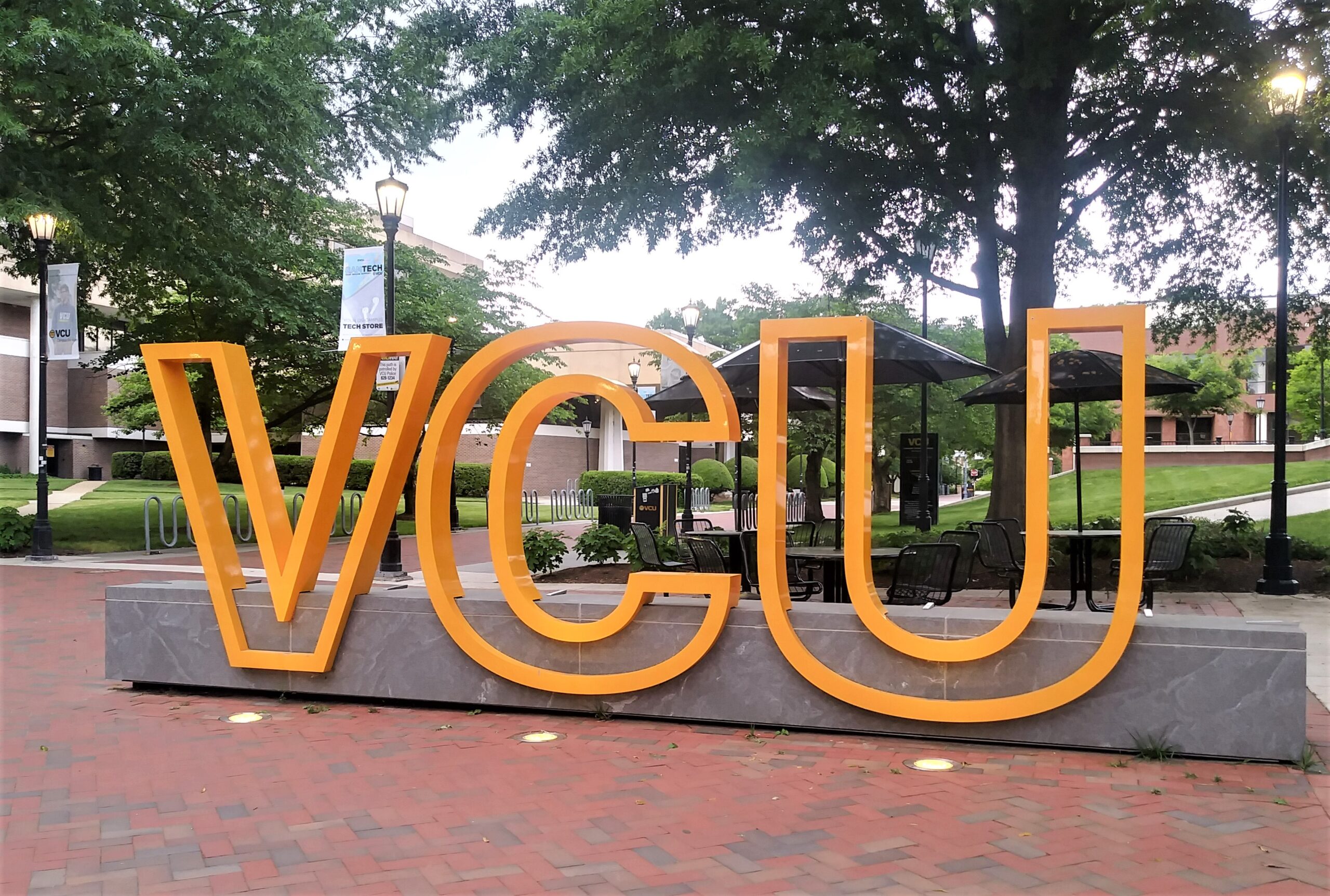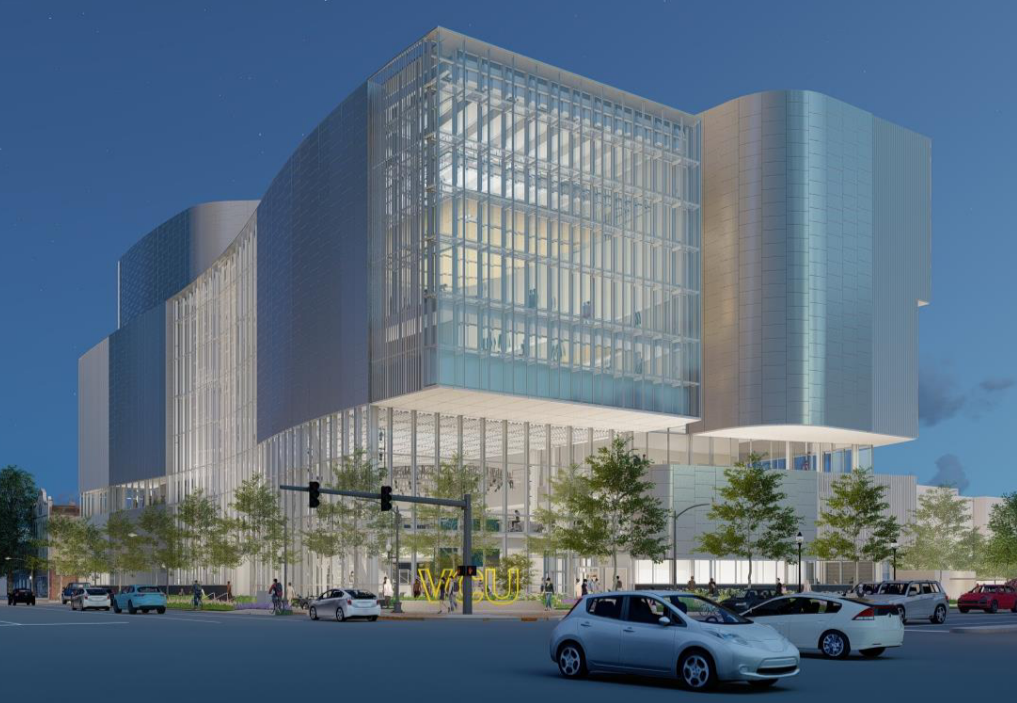
The VCU Board of Visitors voted last week to increase tuition by 3 percent for undergraduate and graduate students in the upcoming 2023-2024 academic year. (BizSense file)
VCU students will be paying a higher tab to attend the university in the upcoming 2023-2024 academic year.
The university’s board of visitors last week voted to approve a 3 percent hike to the tuition rate for undergraduate and graduate students to take effect next school year.
The tuition hike, as well as an increase to students’ mandatory fees, came as a response to factors such as a state-proposed merit salary increase, inflation and operational needs, university leaders said.
The average in-state undergraduate student enrolled in 15 credits per semester will pay about $16,200 in tuition and fees for the academic year, which is an increase of just under $600 compared to the current rate.
Out-of-state undergrads enrolled in 15 credits per semester will pay about $38,800 in tuition and fees (a roughly $1,200 increase).
Mandatory student fees were increased by 6 percent. Those fees cover things like support for sports facilities and athletics, technology and health services. VCU is also raising rates on housing by 7.5 percent and dining plans by 10 percent.
The 3 percent increase to the graduate and undergraduate tuition rate is anticipated to generate $10.5 million.
The tuition hike will generate funds needed to help address, but won’t entirely cover, $59.8 million in new expenses for the upcoming 2024 fiscal year. VCU also will have to make budget cuts and secure money from the state to cover that gap. The current FY23 budget is $1.5 billion.
Among those new costs are the university’s share of the 7 percent salary increase ($18.4 million), utility costs ($6 million), debt and operational needs ($6.3 million), inflation and contractual obligations ($4.2 million) among other expenses.
The majority of the board supported the increase, though board members Anthony Bedell, Peter Farrell and Clifton Peay voted against the motion to increase tuition. The vote was preceded by a public hearing where a dozen students and faculty voiced opposition to the proposal. The university also received 600 written comments regarding the hike, and Rector Benson Dendy noted most opposed the increase.
VCU had considered raising tuition by as much as 5 percent.
Last spring, the university board of visitors voted to raise tuition by 3 percent for the 2022-2023 academic year. The hike was effectively canceled out for in-state undergraduates due to a subsequent funding relocation.
Six-year capital plan approved
Also at Friday’s meeting, the board voted to approve a new six-year capital projects plan, which it does every two years.
Newly added projects to the 2024-2030 plan include but aren’t limited to a $264 million School of Pharmacy project, a $70 million renovation to the Johnson Hall dorm and a $100 million renovation to Oliver Hall, where the university’s School of Education is housed.
The plan already included a new dentistry school building downtown as well as a new arts building on the corner of Broad and Belvidere streets.

A rendering of VCU’s upcoming Arts and Innovation Academy Building, which is planned to be built at the corner of Broad and Belvidere streets. (Image courtesy VCU)
Last week, CoStar Group announced it will give VCU $18 million to support the new arts building, which is tentatively planned to be called the CoStar Center for Arts and Innovation. The board of visitors on Friday also approved an updated cost projection of $253 million for the arts building.

The VCU Board of Visitors voted last week to increase tuition by 3 percent for undergraduate and graduate students in the upcoming 2023-2024 academic year. (BizSense file)
VCU students will be paying a higher tab to attend the university in the upcoming 2023-2024 academic year.
The university’s board of visitors last week voted to approve a 3 percent hike to the tuition rate for undergraduate and graduate students to take effect next school year.
The tuition hike, as well as an increase to students’ mandatory fees, came as a response to factors such as a state-proposed merit salary increase, inflation and operational needs, university leaders said.
The average in-state undergraduate student enrolled in 15 credits per semester will pay about $16,200 in tuition and fees for the academic year, which is an increase of just under $600 compared to the current rate.
Out-of-state undergrads enrolled in 15 credits per semester will pay about $38,800 in tuition and fees (a roughly $1,200 increase).
Mandatory student fees were increased by 6 percent. Those fees cover things like support for sports facilities and athletics, technology and health services. VCU is also raising rates on housing by 7.5 percent and dining plans by 10 percent.
The 3 percent increase to the graduate and undergraduate tuition rate is anticipated to generate $10.5 million.
The tuition hike will generate funds needed to help address, but won’t entirely cover, $59.8 million in new expenses for the upcoming 2024 fiscal year. VCU also will have to make budget cuts and secure money from the state to cover that gap. The current FY23 budget is $1.5 billion.
Among those new costs are the university’s share of the 7 percent salary increase ($18.4 million), utility costs ($6 million), debt and operational needs ($6.3 million), inflation and contractual obligations ($4.2 million) among other expenses.
The majority of the board supported the increase, though board members Anthony Bedell, Peter Farrell and Clifton Peay voted against the motion to increase tuition. The vote was preceded by a public hearing where a dozen students and faculty voiced opposition to the proposal. The university also received 600 written comments regarding the hike, and Rector Benson Dendy noted most opposed the increase.
VCU had considered raising tuition by as much as 5 percent.
Last spring, the university board of visitors voted to raise tuition by 3 percent for the 2022-2023 academic year. The hike was effectively canceled out for in-state undergraduates due to a subsequent funding relocation.
Six-year capital plan approved
Also at Friday’s meeting, the board voted to approve a new six-year capital projects plan, which it does every two years.
Newly added projects to the 2024-2030 plan include but aren’t limited to a $264 million School of Pharmacy project, a $70 million renovation to the Johnson Hall dorm and a $100 million renovation to Oliver Hall, where the university’s School of Education is housed.
The plan already included a new dentistry school building downtown as well as a new arts building on the corner of Broad and Belvidere streets.

A rendering of VCU’s upcoming Arts and Innovation Academy Building, which is planned to be built at the corner of Broad and Belvidere streets. (Image courtesy VCU)
Last week, CoStar Group announced it will give VCU $18 million to support the new arts building, which is tentatively planned to be called the CoStar Center for Arts and Innovation. The board of visitors on Friday also approved an updated cost projection of $253 million for the arts building.



Got 73M to make up…….
Wow, is an undergrad degree from VCU really worth $16,200/ year? Really?
VCU is probably not worth over $16K, but after 10 years out – no employer cares where you got your undergrad degree – experience and competence is king.
VCU scores very highly on student life, very low on graduate wages and very low on value of the credential. Will the cohort of students who want that experience continue to accept raising tuition?
With that in mind, VCU is objectively, a mediocre school, at best. There are far better and less expensive alternatives out there.
This is mind blowing- out of state student tuition- +$38 K….AT VCU? Who, in their right mind, would pay that for the “privilege” of attending VCU????
OMG – VCU’s Board is absolutely tone deaf. They are shameless! So again, the middle class gets to bear the burden of VCU Health losing millions. If there is a budget gap, how about STOP building buildings for a minute. Take a break with the SPENDING. But what the hey – it’s other people’s money VCU spends.
My biggest gripe is how college works now. 1) college campuses do not need to be paradise and have all new everything. It’s nice, but the current building spree is not sustainable. 2) the General Assembly needs to cut tuition drastically by significantly funding higher education (right now the state pays very little). 3) Colleges need to be forced to use 90% full time faculty (adjuncts are abused in today’s system). 4) we need to have an internship as a graduation requirement and work with alumni networks/regional companies to provide the opportunities. Some schools have great job placement and others… Read more »
Justin – I agree with everything you say, except # 2. If the GA funds most of the costs of higher education, that means that school does not end at grade 12, but at grade 16. If the taxpayer is funding higher ed, then everyone should go, because everyone is paying for it.
OR…. we will become like most other countries that fund higher ed and it will become MUCH harder to get into ANY college.
Indeed, MANY students come to the USA because they want to study subject X, but they cannot get into a program in their home country (and they are all pretty much equal in, say Germany) so they find a school in the USA that will gladly let them in and take their money.
Tuition keeps going up because the Feds keep giving more money for FAFSA. FAFSA is a pass through of taxpayer monies to Universities. As long as the Feds keep giving more money to higher ed (& to FAFSA grants) – tuition will continue to increase.
Preach!
I guess someone has to try and makeup
for the bad deal they cut on the $80M
payment they agreed to. Sorry VCU students
and parents.
VCU’s spiderweb of expansion is one of the top 5 worst things to happen to Richmond.
I STRONGLY disagree. That does not mean that I think it should be done stupidly or willy nilly — but the expansion of VCU has been, by far, one of the BEST things to happen to Richmond. That is, unless you miss the 1980s and 1990s here, when Richmond was the Murder Capital of the USA. I suspect that is who you are, somehow. Back then, the movers and shakers were at-best Mediocrities and many were either “White” or “Black” at-least part-time race warriors of some kind, wasting countless energy on divisive and mutually exclusive politics. For instance: when I… Read more »
Richmond now is pretty close to being the Murder capital of the U.S.A. with your little fancy liberal college.I try to avoid entering Richmond especially after dark.
Top Ten Muder states— Mississippi in first, then Louisiana, Alabama, South Carolina, Missouri, Illinois, Maryland, Arkansas, Tennessee, and Georgia. Looks like RED STATES are the Murder states
Give other schools in the area a shot. UR, VUU and VSU or local community colleges. Prices are way more competitive.
errrr…. I don’t think UR is cheaper.
And I am not going to comment on VUU and VSU — you can look up the stats yourself on those places.